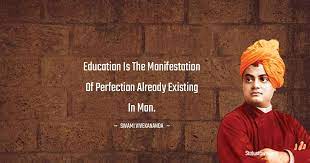The Deccan Education Society (DES) is a prominent educational organization in India. It was founded in 1884 by a group of social reformers led by the philosopher and educator Mahadev Govind Ranade. The primary aim of the society was to provide education to the masses, particularly in the Deccan region of Maharashtra, India.
The DES is headquartered in Pune, Maharashtra and currently runs over 40 educational institutions, ranging from primary schools to postgraduate colleges, in various fields such as engineering, management, law, arts, and sciences. Some of its most well-known institutions include Fergusson College, Brihan Maharashtra College of Commerce, and Tilak Maharashtra Vidyapeeth.
The society has played a significant role in the development of education in Maharashtra, particularly in the fields of social sciences and literature. Many renowned scholars and intellectuals have been associated with the DES, including Gopal Krishna Gokhale, Justice Mahadev Govind Ranade, and Lokmanya Tilak.
The Deccan Education Society continues to promote its mission of providing quality education to all, regardless of socio-economic background, and has been instrumental in shaping the educational landscape of Maharashtra and India as a whole.
What is Deccan education society
The Deccan Education Society (DES) is a non-governmental organization based in Pune, India, that was founded in 1884 by a group of social reformers, including Mahadev Govind Ranade, Vishnushastri Chiplunkar, and Bal Gangadhar Tilak. The primary objective of the society was to provide education to the masses, particularly in the Deccan region of Maharashtra.
The society initially focused on promoting vernacular education and setting up schools that were accessible to students from all sections of society. Over time, it expanded its scope to include higher education, and today, the society runs over 40 educational institutions ranging from pre-primary schools to postgraduate colleges.
The DES is known for its contribution to the development of education in Maharashtra, particularly in the fields of social sciences and literature. It has played a pivotal role in promoting the use of Marathi language in education and has contributed to the growth of Marathi literature through its various institutions.
The society has been instrumental in shaping the educational landscape of India and has produced many renowned scholars and intellectuals. The Deccan Education Society continues to work towards its goal of providing quality education to all, regardless of socio-economic background, and promoting social reform through education.
Who founded Deccan Educational Society?
The Deccan Education Society (DES) was founded by a group of prominent social reformers led by Mahadev Govind Ranade in 1884. Other notable founders of the society include Vishnushastri Chiplunkar and Bal Gangadhar Tilak. Their vision was to provide education to the masses, particularly in the Deccan region of Maharashtra, and promote social reform through education. Since its inception, the society has played a significant role in the development of education in Maharashtra and has been instrumental in shaping the educational landscape of India.
Deccan Education Society
The Deccan Education Society (DES) is a non-governmental organization based in Pune, Maharashtra, India. It was founded in 1884 by a group of prominent social reformers, including Mahadev Govind Ranade, Vishnushastri Chiplunkar, and Bal Gangadhar Tilak. The primary objective of the society was to provide education to the masses, particularly in the Deccan region of Maharashtra.
The society started by setting up schools that were accessible to students from all sections of society, and it later expanded its scope to include higher education. Today, the society runs over 40 educational institutions ranging from pre-primary schools to postgraduate colleges.
The DES has been instrumental in promoting the use of Marathi language in education and has contributed significantly to the growth of Marathi literature. It has played a pivotal role in shaping the educational landscape of India and has produced many renowned scholars and intellectuals.
The society continues to work towards its goal of providing quality education to all, regardless of socio-economic background, and promoting social reform through education. Some of its most well-known institutions include Fergusson College, Brihan Maharashtra College of Commerce, and Tilak Maharashtra Vidyapeeth.
Historie
The Deccan Education Society (DES) was founded in 1884 by a group of prominent social reformers led by Mahadev Govind Ranade, Vishnushastri Chiplunkar, and Bal Gangadhar Tilak. The primary aim of the society was to provide education to the masses, particularly in the Deccan region of Maharashtra, India.
At the time, education was largely restricted to the upper castes and the British administration in India was not doing much to address this issue. The founders of the society believed that education was the key to social reform and worked towards making education accessible to all sections of society, regardless of caste or religion.
The society started by setting up schools that provided education in the vernacular language, which was a radical idea at the time, as education in English was considered superior. They believed that education in the mother tongue would make it more accessible and relevant to the masses.
Over time, the society expanded its scope to include higher education and set up institutions that offered courses in various fields, including social sciences, literature, engineering, management, law, and more.
The DES has played a significant role in shaping the educational landscape of Maharashtra and India as a whole. It has been instrumental in promoting the use of Marathi language in education and has contributed significantly to the growth of Marathi literature. Many renowned scholars and intellectuals have been associated with the society, including Gopal Krishna Gokhale and Lokmanya Tilak.
Today, the Deccan Education Society continues to work towards its mission of providing quality education to all, regardless of socio-economic background, and promoting social reform through education.
Deccan Education Society Founders
The Deccan Education Society (DES) was founded in 1884 by a group of prominent social reformers led by Mahadev Govind Ranade, Vishnushastri Chiplunkar, and Bal Gangadhar Tilak. These three individuals, along with other members of the society, were instrumental in shaping the educational landscape of Maharashtra and India as a whole.
Mahadev Govind Ranade was a social reformer, scholar, and jurist who played a significant role in the Indian National Congress and was one of the founders of the Poona Sarvajanik Sabha, which worked towards promoting the rights of the lower castes and women.
Vishnushastri Chiplunkar was a writer, thinker, and social reformer who believed in the importance of education in the mother tongue. He was a champion of the Marathi language and was one of the pioneers of the Marathi literary movement.
Bal Gangadhar Tilak was a politician, journalist, and social reformer who played a significant role in the Indian independence movement. He was a strong advocate of Indian nationalism and believed in the importance of self-rule.
Together, these three founders of the Deccan Education Society, along with other members of the society, worked towards providing education to the masses and promoting social reform through education. They believed that education was the key to empowering individuals and communities and worked tirelessly to make education accessible to all sections of society, regardless of caste or religion.
Eligibility
The eligibility requirements to enroll in educational institutions run by the Deccan Education Society (DES) vary depending on the level and type of education. However, in general, the society aims to provide education to all, regardless of socio-economic background or academic performance.
For primary and secondary education, most schools run by DES have no specific eligibility criteria, and admission is open to all students who meet the age requirements for the grade level. In some cases, admission may be subject to passing an entrance exam or meeting certain academic requirements.
For higher education, admission requirements vary depending on the course and level of education. For undergraduate courses, students generally need to have completed their secondary education and passed a qualifying entrance exam, such as the Common Entrance Test (CET) for engineering or medical courses. Some courses may have additional eligibility criteria, such as minimum marks in certain subjects or a certain level of proficiency in English.
For postgraduate courses, students generally need to have completed their undergraduate education in a relevant field and may need to pass a qualifying entrance exam, such as the Graduate Aptitude Test in Engineering (GATE) for engineering courses or the Common Admission Test (CAT) for management courses.
It is important to note that the eligibility requirements may vary from institution to institution and from course to course, so it is always advisable to check with the specific institution or program for the most up-to-date information.
Duration
The duration of educational programs offered by the Deccan Education Society (DES) varies depending on the level and type of education. Here is a general overview of the typical duration of programs offered by DES:
Primary education: The duration of primary education in DES schools is typically five years, from first grade to fifth grade.
Secondary education: Secondary education in DES schools is typically three years, from sixth grade to eighth grade, followed by four years of high school education from ninth grade to twelfth grade.
Undergraduate programs: The duration of undergraduate programs offered by DES colleges varies depending on the field of study. Bachelor of Arts (BA) and Bachelor of Science (BSc) programs typically last for three years, while Bachelor of Engineering (BE) programs last for four years. Bachelor of Education (BEd) programs may last for one or two years.
Postgraduate programs: Postgraduate programs offered by DES colleges typically last for two years. Master of Arts (MA), Master of Science (MSc), and Master of Commerce (MCom) programs are usually two-year programs, while Master of Engineering (ME) programs may last for two years or more. Doctor of Philosophy (PhD) programs may take several years to complete, depending on the research topic and the pace of the student’s research.
It is important to note that the duration of educational programs may vary from institution to institution and from course to course, so it is always advisable to check with the specific institution or program for the most up-to-date information.
Conclusion
The Deccan Education Society (DES) was founded in 1884 by a group of prominent social reformers led by Mahadev Govind Ranade, Vishnushastri Chiplunkar, and Bal Gangadhar Tilak. The society has played a significant role in shaping the educational landscape of Maharashtra and India as a whole, providing education to the masses and promoting social reform through education.
The eligibility requirements to enroll in educational institutions run by the Deccan Education Society (DES) vary depending on the level and type of education. The society aims to provide education to all, regardless of socio-economic background or academic performance.
The duration of educational programs offered by the Deccan Education Society (DES) varies depending on the level and type of education. Primary education in DES schools typically lasts for five years, secondary education for seven years, undergraduate programs for three to four years, and postgraduate programs for two years.
Overall, the Deccan Education Society has had a significant impact on the education sector in India, providing education to millions of students and promoting social reform through education.






